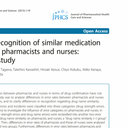Delta9-tetrahydrocannabinol (Delta9-THC) prevents cerebral infarction via hypothalamic-independent hypothermia.
Keywords
Abstract
Delta(9)-tetrahydrocannabinol (Delta(9)-THC), a primary psychoactive constituent of cannabis, has been reported to act as a neuroprotectant via the cannabinoid CB(1) receptor. In this study, Delta(9)-THC significantly decreased the infarct volume in a 4 h mouse middle cerebral artery occlusion mouse model. The neuroprotective effect of Delta(9)-THC was completely abolished by SR141716, cannabinoid CB(1) receptor antagonist, and by warming the animals to 31 degrees C. Delta(9)-THC significantly decreased the rectal temperature, and the hypothermic effect was also inhibited by SR141716 and by warming to 31 degrees C. At 24 h after cerebral ischemia, Delta(9)-THC significantly increased the expression level of CB(1) receptor in both the striatum and cortex, but not in the hypothalamus. Warming to 31 degrees C during 4 h cerebral ischemia did not increase the expression of CB(1) receptor at the striatum and cortex in MCA-occluded mice. These results show that the neuroprotective effect of Delta(9)-THC is mediated by a temperature-dependent mechanism via the CB(1) receptor. In addition, warming to 31 degrees C might attenuate both the neuroprotective and hypothermic effects of Delta(9)-THC through inhibiting the increase in CB(1) receptor in both the striatum and cortex but not in the hypothalamus, which may suggest a new thermoregulation mechanism of Delta(9)-THC.


